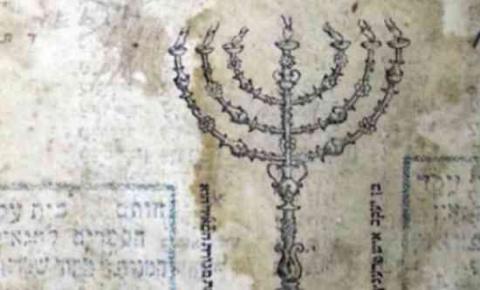‘Cultural Survivors of the Holocaust’: new website under the auspices of YIVO
A total of 4.1 million pages will be made available to online researchers through the Edward Blank YIVO Vilna Online Collections Project — an initiative undertaken by YIVO in collaboration with three Lithuanian academic institutions.
Much of the material in the collections was rescued by Jews trying to survive under Nazi occupation, including workers from the Vilna (now Vilnius) Ghetto who became known as the “Paper Brigade.” Ordered by Nazi forces in 1941 to sort through documents that survived their ransacking of the YIVO Institute in Vilna for transfer to a Nazi research institute in Berlin, the “Paper Brigade” workers — many of whom had been associated with YIVO before the German invasion — risked their lives by also hiding materials on their bodies to smuggle into the Vilna Ghetto, where they were secretly stored.
These rescued materials were uncovered after the war and then again saved in 1948 from the Soviets by the Lithuanian librarian, Antanas Ulpis. They remained hidden in a church that was converted into a library by the Soviet authorities until they were discovered in 1989.
The stolen books and documents shipped to Germany by the Nazis have also been digitized. These were recovered by the US Army in 1946 and sent to YIVO’s headquarters in New York City. Another major component of the collection comprises 170,000 documents discovered in the National Library of Lithuania, including rare and unpublished works.
“These surviving books and documents — split apart by history and located in New York City and Vilnius, Lithuania — are cultural survivors of the Holocaust,” a YIVO statement announcing the launch of the online collection declared. “YIVO’s original prewar archives and library are the preeminent source of documentation on the subject of East European Jewish civilization, which spanned over 1,000 years. The Edward Blank YIVO Vilna Online Collections Project has created the single largest digital collection related to East European Jewish civilization, including the largest collection of Yiddish language materials in the world.”
YIVO said that the collections would “tell us how Jews lived, where they came from, how they raised and educated their families, how they created art, literature, music, and language itself. Furthermore, these documents reveal the relations between Jews and their non-Jewish neighbors, how they understood their place in the world both politically and socially and how they faced the turmoil and promise of modernity.”
Dr. Rima Cicėnienė — a researcher at the Wroblewski Library of the Lithuanian Academy of Sciences, which participated in the digitization project — said that the collections available online would enable “people worldwide to learn about the daily life and holidays, the joys and sorrows and culture of the Jewish people a nation that has lived side by side with us for centuries.”
Leading academics welcomed the project’s official launch.
Richard Ovenden, director of the Bodleian Library at the University of Oxford in the UK, paid tribute to “the heroic efforts of the Jewish librarians, archivists, poets, and scholars in the Paper Brigade, who risked their lives to ensure the survival of an astonishing trove of documents that preserve the rich culture of Jewish life across Eastern Europe.” “This history can now be accessed thanks to the great work of YIVO and their Lithuanian partners,” Ovenden said.
Prof. Steven J. Zipperstein, of the Department of Jewish Culture and History at Stanford University, recalled that as a doctoral student during the 1970s, he had been aware of the existence of “treasures once belonging to YIVO yet beyond reach.” “Now, finally, this veritable goldmine is united, virtually, opening for the scholar and the general reader knowledge about a vanished world immeasurably more accessible because of this new, extraordinary resource,” Zipperstein continued.
The project’s website features a fully searchable database as well as highlights of items of special interest discovered in the rescued archives.

